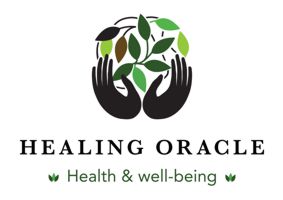Do you often experience chronic pain that lasts for months or a longer span of time? You know how debilitating it can be as it interferes with every aspect of daily life. In some people, chronic pain ends up causing hopelessness and intense frustration.
According to a study [1], nearly 31% of Americans are affected by chronic pain. Unfortunately, most people turn to pills and creams for relief without addressing the root cause.
If you suffer from distress and pain, look for the honest answer on your plate right in front of you. Research proves that diet and pain can be connected. For instance, nearly a quarter of those with rheumatoid arthritis reported that the diet impacted the severity of symptoms. [2]
Let’s find out how food affects pain levels and how to decrease pain without even opening the medicine box?
How Foods Trigger Pain
Certain foods trigger pain, but what needs attention is inflammation and its role in diet and disease. Let’s dig it a little. Inflammation is a normal immune response that secures the body against any infection or injury. For instance, when you get a wasp sting, you experience swelling and itchiness as your immune system springs into action. Some conditions cause our immune system to trigger this inflammatory response. This causes the immune cells to attack the healthy, normal cells resulting in tissue damage and pain.
Certain types of pro-inflammatory proteins also work directly by activating nerve cells, which can trigger and intensify the pain. [3]
Some conditions directly associated with inflammation and pain are, Celiac disease, Leaky gut syndrome, Arthritis, food allergies and sensitivities, Lupus, Ulcerative colitis, Crohn’s disease, Gout, Headaches/migraines, and many more!
You might wonder what role does food play in all of this? So, 70 percent of human immune cells are found in the digestive tract [4]. The diet can have a powerful impact on arbitrating the inflammatory response. Strengthening the immune system by taking control of diet can be an easy and effective way to reduce inflammation and eliminate pain.
Here is a list of foods that can set off symptoms and make pain & inflammation worse.
Top Pain-Triggering Foods
1. Dairy
Humans are born with the ability to digest lactose, the primary type of sugar in cow’s milk. A study found that 75 percent of people across the globe lose this ability at an age during life [5]. Being lactose intolerant and consuming dairy products can cause bloating, flatulence, abdominal cramps, or diarrhea. Some studies suggest that dairy consumption should be limited in those having arthritis to decrease inflammation and alleviate symptoms [6]. More studies are needed to explore if switching to a dairy-free diet is worth it for people suffering from chronic pain.
2. Alcohol
An occasional glass of red wine with dinner is okay; continuous chronic alcohol consumption may not be significant for your health or pain levels. Overdose weakens the liver, triggers inflammation, and worsens the symptoms of conditions like inflammatory bowel disease [7,8]. If you ought to sleep with a drink, avoid taking those sugary mixers and high-carb beers as sides! Also, practice moderation with not more than five drinks per week.
3. Vegetable Oils
Vegetable oils are high in omega-6 fatty acids, which should not be avoided in excess. Most dieticians suggest sticking to a 2:1 ratio of omega-6 to omega-3 fatty acids [9]. Omega-6 fatty acids are pro-inflammatory, and excess is linked to pain. Some studies associate a diet high in omega-6s with functional limitations, more pain, sensitivity, and distress [10].
4. Meat
More and more studies have stated to limit red and processed meats consumption. This is because eating more red and processed meats can likely increase inflammation, which is believed to be a significant cause of chronic pain [11,12]. Some types of meat are high in purines and compounds, aggravate gout, and cause pain.
5. Sugar
Sugar is associated with an extensive list of deleterious effects on health, including heart disease & cancer [13]. Your sweet tooth might contribute to pain as well. Some studies suggest that a high-sugar diet can cause alterations in the gut microbiome, further promoting inflammation and influencing the immune system [14]. High sugar intake increases intestinal permeability, allowing particles to pass through the bloodstream, triggering leaky gut symptoms, including pain. (15)
6. Processed Foods
The present generation is doomed to consume ultra-processed foods, which make up a substantial portion of the modern diet. A study indicated that processed foods account for 58% of total energy intake [16]. This includes convenience foods, cakes, juices, potato chips, sodas, and breakfast cereals. A diet packed with processed junk might be the culprit behind your chronic pain and increased inflammation. [17, 18].
Ending Note:
If you suffer from chronic pain, re-think your diet to track down the root of the problem. There are several steps to start on the path toward pain-free living. Tests are available for certain conditions, such as lactose intolerance, food allergies, and celiac disease. These tests are a great way to pinpoint specific problems and identify nix foods in your diet. An elimination diet ensures that the foods are cut out entirely and then slowly re-introduce over a period of several weeks.
You also need to recognize the poison introduced to you through diet soda. Find here the list of foods that end up harming your brain and some superfoods that help cleanse the liver. Read here for some details about how good nutrition impacts your mood and health.
Dietary choices also contribute to the risk of developing inflammation, hypercholesterolemia, hypertension, and overweight/obesity. All these risks increase diseases associated with severe morbidity and mortality, including cardiovascular disease, diabetes, and cancer, thus proving the role of a healthy diet for healthy living.
References & Sources:
- https://pubmed.ncbi.nlm.nih.gov/20797916/
- https://pubmed.ncbi.nlm.nih.gov/28217907/
- https://www.ncbi.nlm.nih.gov/pmc/articles/PMC2785020/
- https://www.ncbi.nlm.nih.gov/pmc/articles/PMC2515351/
- https://www.ncbi.nlm.nih.gov/pmc/articles/PMC3401057/
- https://www.ncbi.nlm.nih.gov/pmc/articles/PMC3546455/
- https://www.ncbi.nlm.nih.gov/pmc/articles/PMC2842521/
- https://pubmed.ncbi.nlm.nih.gov/20682190/
- https://www.ncbi.nlm.nih.gov/pmc/articles/PMC4808858/
- https://pubmed.ncbi.nlm.nih.gov/28542024/
- https://www.ncbi.nlm.nih.gov/pmc/articles/PMC3379589/
- https://pubmed.ncbi.nlm.nih.gov/11986578/
- https://www.ncbi.nlm.nih.gov/pmc/articles/PMC5133084/
- https://www.ncbi.nlm.nih.gov/pmc/articles/PMC2894525/
- https://www.ncbi.nlm.nih.gov/pmc/articles/PMC4253991/
- https://pubmed.ncbi.nlm.nih.gov/26962035/
Love and Light
The Healing Oracle Team
Please join our growing numbers on MeWe: Healing Oracle
Also join us on Twitter | YouTube
Global Petition
Please sign our global petition against enforced vaccinations The intention of this petition is to present 5 million signatures to each President, Prime Minister, Health Minister and heads of state worldwide.
Vaccines are a global problem and need to be tackled on a global level.
If we stand as one, we have a chance of saving the children of the future.

